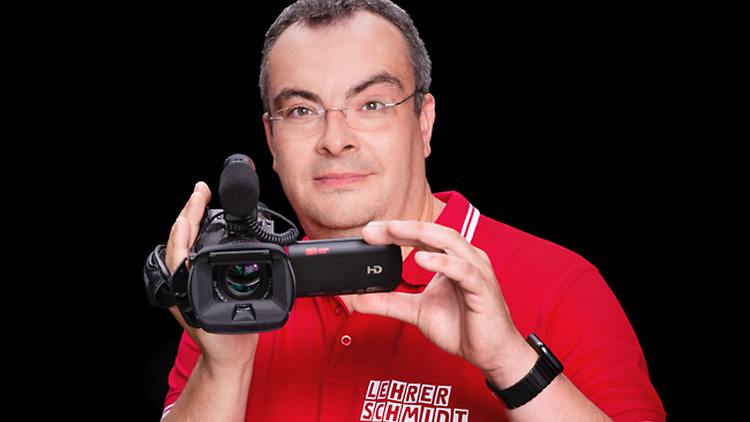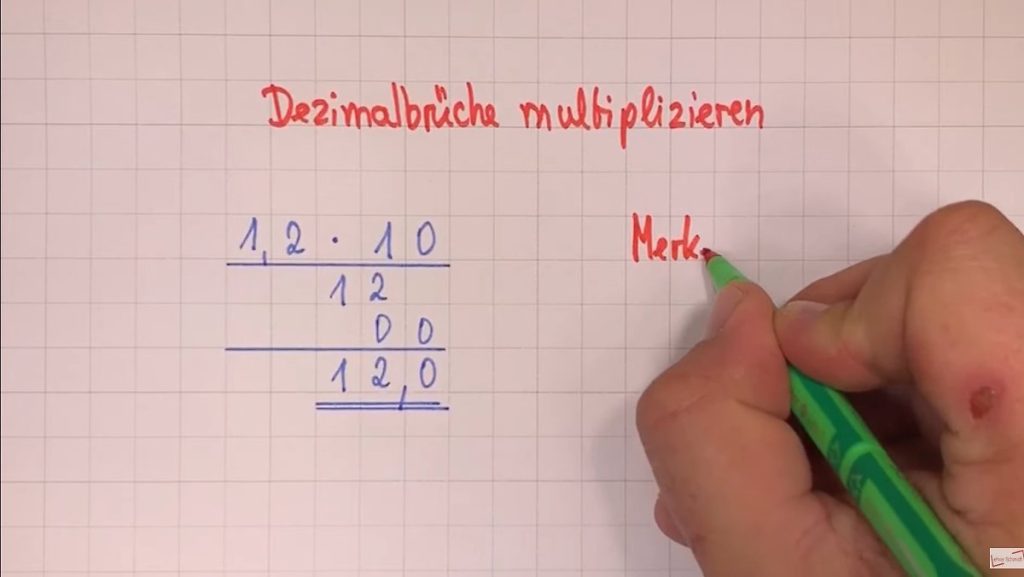Wednesday 15 December 2021
“No one is looking anyway”?
Schmidt, a YouTube teacher, makes math great
Mathematics teacher ranks among the top 3 on German YouTube lists. This fact is surprising only at first glance, because YouTube has also been an educational medium for a long time. And teacher Kai Schmidt is one of his familiar faces.
What does it take for trending videos that are so popular with young and old? Gorgeous blue hairdo, quick cuts or rap and youthful language? Kai Schmidt of Grafschaft Bentheim takes a square sheet of paper, a ballpoint pen or felt-tip pen and explains fractions, percentages, or the pq formula. This year, it made it to YouTube’s Top 3 list in the “Maker of the Year” category – behind well-known names like Rezo and Hungriger Hugo. Schmidt alias Lehrerschmidt has a good 1.2 million subscribers on the video channel.

Kai Schmidt doesn’t look quite the same anymore as he did in the early days of his YouTube channel.
(Photo: dpa)
His career as a YouTube star started involuntarily, says the 42-year-old, who now works as the head of a high school in Uelsen on the German-Dutch border. About seven years ago he had a high school math class. “That was a great class — the problem was that a lot of the basic skills I wanted to focus on were missing,” Schmidt says. So he came up with the idea of making this basic knowledge available in the videos so that he could get to the actual topics in class.
The first videos were on the school server. Soon there was a shortage of storage space. The students advised him to post it on Youtube. Only his students should watch the videos. “To my surprise, I saw that the number of clicks was much higher than the number of my students,” says the teacher. Young people passed the links through WhatsApp groups. At one point he had the idea to make the videos public immediately. “No one’s looking anyway,” Schmidt says and laughs.
patience and kindness
Meanwhile, not only are students looking at, but also parents and grandparents — and teachers. In his videos, Schmidt progresses in a very organized manner, always explains patiently, is never restless or frantic, calculates sample tasks, explains possible solutions, draws breaks using the given square, writes each number in a square and confirms the end result twice – also with box set.
“I have a certain sympathy for this simplicity,” acknowledges Professor Osnabrück of Mathematics Education, Alexander Sall. 12-year-old Michael from Hanover says he’s a big fan of Lehrerschmidt. “I think it’s great about him that he explains everything so well, and he explains so well and slowly.” Michael says the fact that Schmidt uses the same pens as students is also well received. “He explains very slowly and doesn’t just write an example. He always does it in a funny and nice way, speaks very clearly and does it well.”
Instructional videos like Lehrerschmidt’s clip can be watched over and over, teaching expert Salle explains. “Formatting for that has individual options.” The fact that the tasks correspond to the tasks they know from school, right down to a very realistic representation using the marked pen and box, ensures familiarity between the students. And very important: The videos convey “procedural knowledge”: anyone who wants to add fractions or calculate percentage points must master the steps and tools – which is exactly what Lehrerschmidt practices, but also other video lessons.
It’s colder than 7:50 a.m.
As an educational scientist, he sees a weakness in these videos in the fact that when focusing on purely arithmetic procedures, flexibility drops by the wayside to be able to apply basic mathematical structures and terms to other areas. It is important to have tools to trade, as is done in the educational videos. “But as an education specialist, I would like additional training in ideas and terminology relevant to the processes involved,” says Sal.
Kai Schmidt sees his videos as a tool for repeating things from math lessons. He is also happy to receive criticism, for example, from his colleagues. As a Lehrerschmidt, he did nothing better than all of his fellow mathematics teacher. This is a purely personal perception of the students. “My video has the big advantage that it’s available when a student has a core motivation to do math now. That’s much better than 7:50 a.m.”

“Total coffee aficionado. Travel buff. Music ninja. Bacon nerd. Beeraholic.”








More Stories
Coral Seeding: Artificial Insemination Makes Coral More Heat Tolerant
Fear, Anger, and Denial: How People Respond to Climate Change – Research
LKH Graz: Using radiation to combat heart arrhythmias